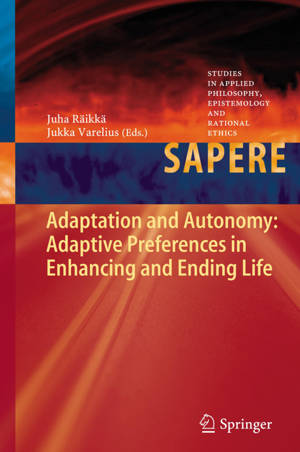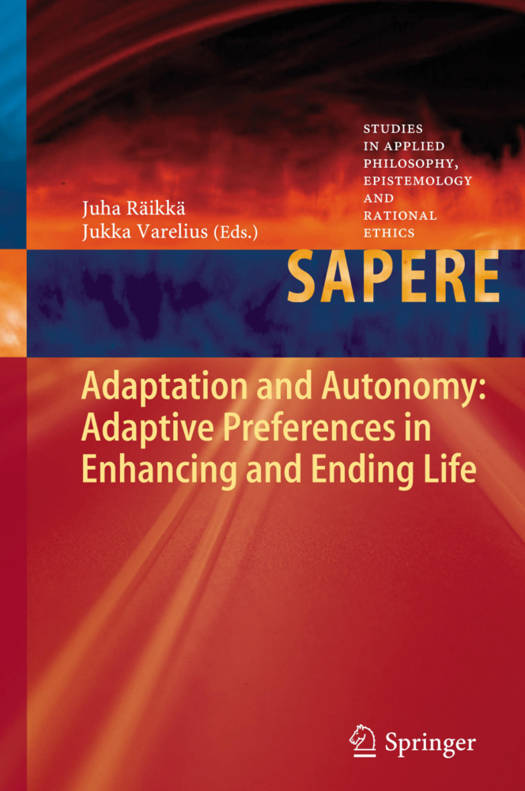
Door een staking bij bpost kan je online bestelling op dit moment iets langer onderweg zijn dan voorzien. Dringend iets nodig? Onze winkels ontvangen jou met open armen!
- Afhalen na 1 uur in een winkel met voorraad
- Gratis thuislevering in België vanaf € 30
- Ruim aanbod met 7 miljoen producten
Door een staking bij bpost kan je online bestelling op dit moment iets langer onderweg zijn dan voorzien. Dringend iets nodig? Onze winkels ontvangen jou met open armen!
- Afhalen na 1 uur in een winkel met voorraad
- Gratis thuislevering in België vanaf € 30
- Ruim aanbod met 7 miljoen producten
Zoeken
Adaptation and Autonomy: Adaptive Preferences in Enhancing and Ending Life
€ 158,45
+ 316 punten
Omschrijving
This volume gathers together previously unpublished articles focusing on the relationship between preference adaptation and autonomy in connection with human enhancement and in the end-of-life context. The value of individual autonomy is a cornerstone of liberal societies. While there are different conceptions of the notion, it is arguable that on any plausible understanding of individual autonomy an autonomous agent needs to take into account the conditions that circumscribe its actions. Yet it has also been suggested that allowing one's options to affect one's preferences threatens autonomy. While this phenomenon has received some attention in other areas of moral philosophy, it has seldom been considered in bioethics. This book combines for the first time the topics of preference adaptation, individual autonomy, and choosing to die or to enhance human capacities in a unique and comprehensive volume, filling an important knowledge gap in the contemporary bioethics literature.
Specificaties
Betrokkenen
- Uitgeverij:
Inhoud
- Aantal bladzijden:
- 201
- Taal:
- Engels
- Reeks:
- Reeksnummer:
- nr. 10
Eigenschappen
- Productcode (EAN):
- 9783642447358
- Verschijningsdatum:
- 13/06/2015
- Uitvoering:
- Paperback
- Formaat:
- Trade paperback (VS)
- Afmetingen:
- 156 mm x 234 mm
- Gewicht:
- 299 g

Alleen bij Standaard Boekhandel
+ 316 punten op je klantenkaart van Standaard Boekhandel
Beoordelingen
We publiceren alleen reviews die voldoen aan de voorwaarden voor reviews. Bekijk onze voorwaarden voor reviews.










